The Renault Zoe, one of Europe's most popular electric cars, has been given a zero-star safety rating in the latest round of Euro NCAP crash tests, while Renault's sibling brand Dacia Spring EV was awarded just one star.
The Zoe becomes just the third car in Euro NCAP's history to record a zero-star rating, 20 years after the Renault Laguna became the first car to achieve a five-star verdict.
The Zoe previously held a five-star Euro NCAP rating but was entered into the tests following a substantial facelift last year which ushered in a bigger battery and extra power but also, the safety organisation notes, a new seat-mounted side airbag that protects just the occupant's thorax, rather than the head and thorax as it did previously.
This change represents "a degradation in occupant protection", according to Euro NCAP, which reported that in the side-pole-impact test, the "driver's head directly impacted the intruding pole and head injury values indicated poor protection of this part of the body".
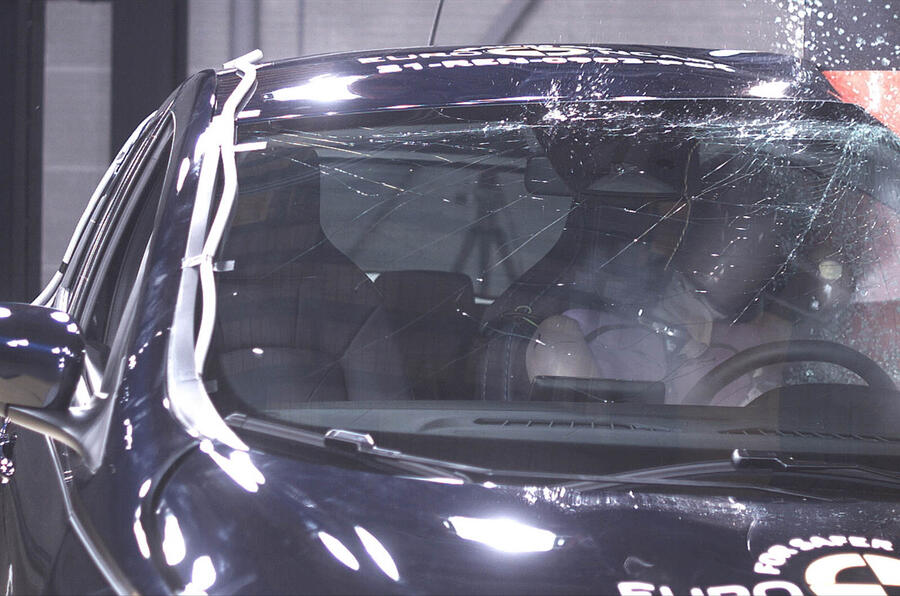
The supermini's performance in the frontal offset crash test was also "poor", with Euro NCAP citing weak protection for the driver's chest area and the necks of children in the back seats specifically.
The Zoe is also said to lack active safety technology "commonly fitted as standard", such as lane-departure warning and standard-fit automatic emergency braking (AEB), which vehicle safety research firm Thatcham says can reduce "front-to-rear crashes with injuries by 56%". Therefore it achieved a rating of just 14% in the Safety Assist category, some 61% lower than the 2021 average.
Importantly, however, Renault will make AEB standard to all Zoe models ordered from 1 March 2022.
Overall, the Zoe achieved a 43% adult occupant safety rating (the lowest for 11 years), a 52% child occupant rating and a 41% rating in the Vulnerable Road Users category.
Matthew Avery, Euro NCAP board member and chief research and strategy officer at Thatcham, told Autocar: “Every few years, Euro NCAP raises the bar by introducing new tests which either exploit new technologies or lift the hurdle to make manufacturers do better. If everyone is five-star, we need to lift the barrier."
As a result of these alterations, he explained: “When we first tested the Zoe, it did reasonably well and had all the elements you needed back then to get a reasonable score. But if you've still got the same design 10 years later, you aren't going to score as well.”

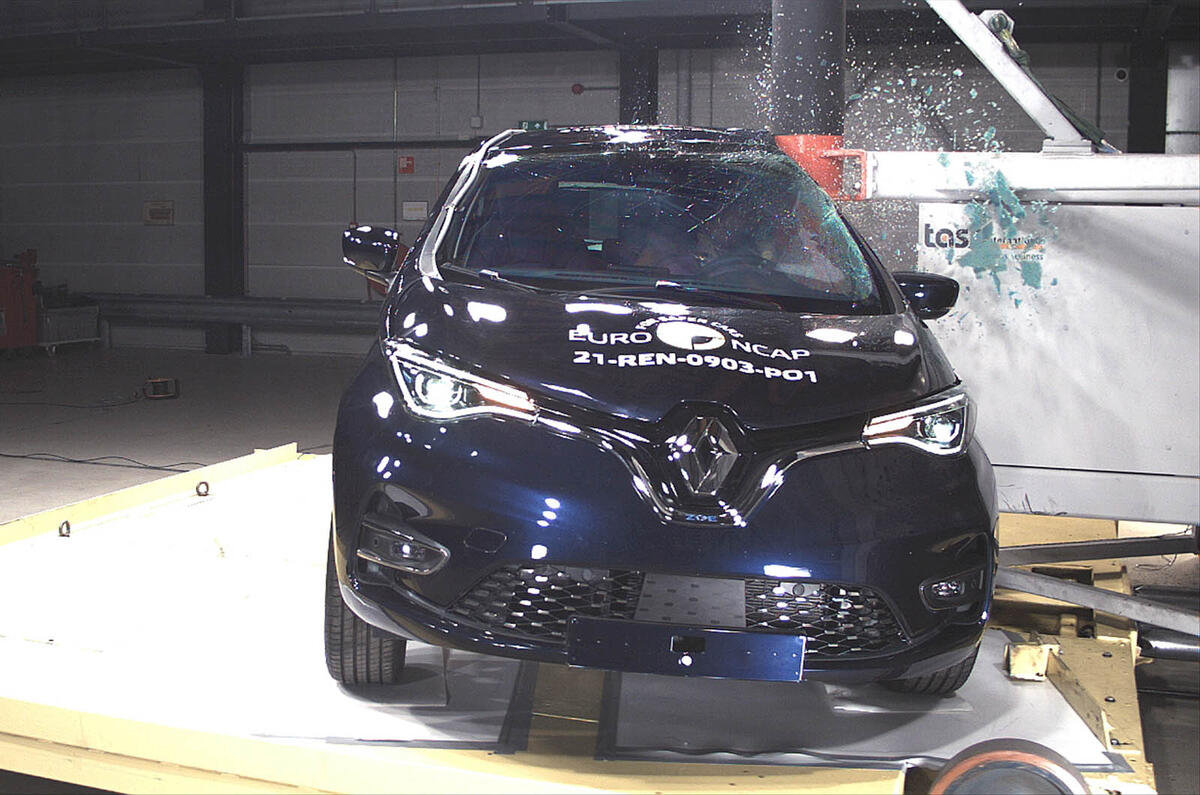

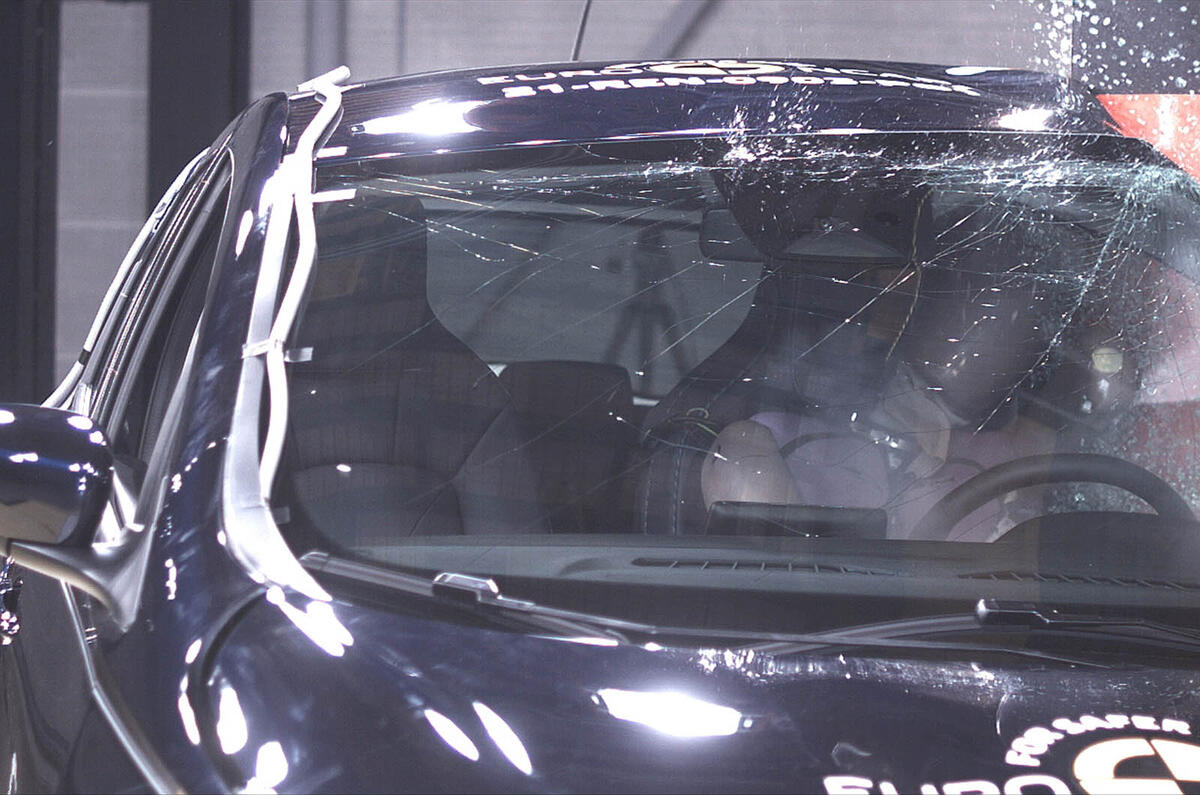
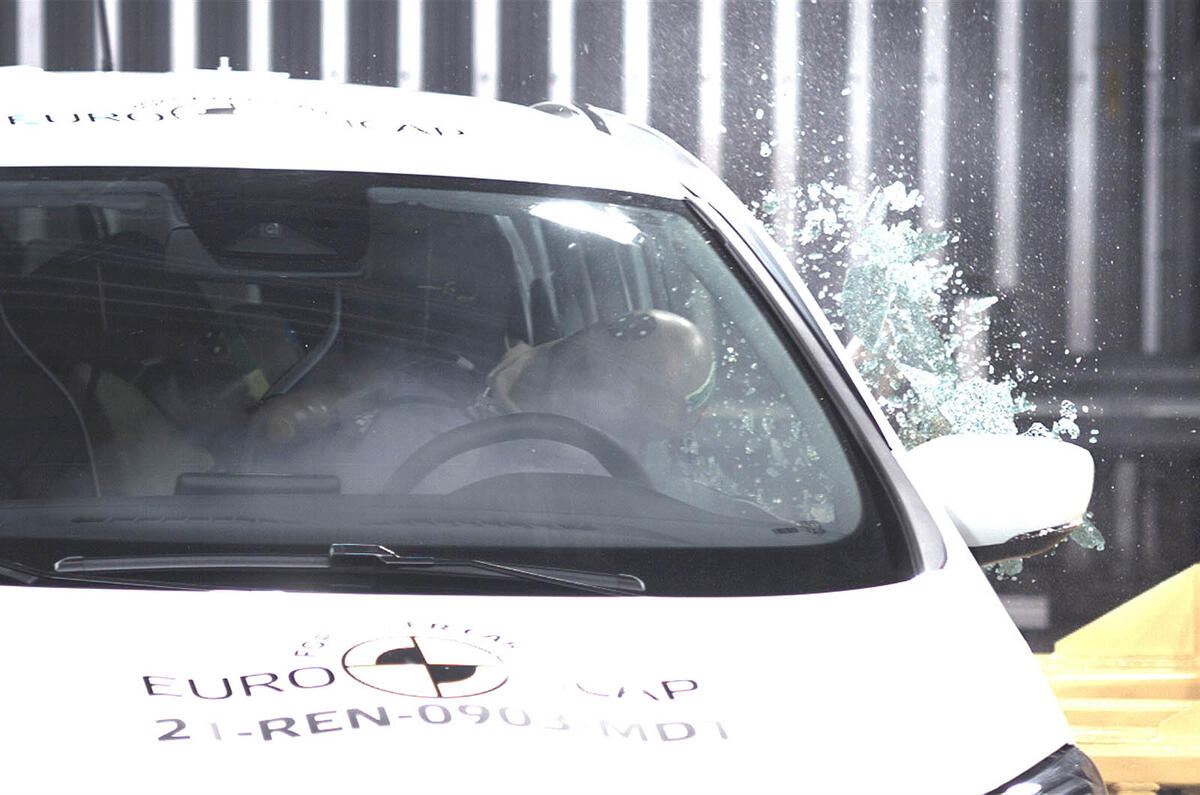
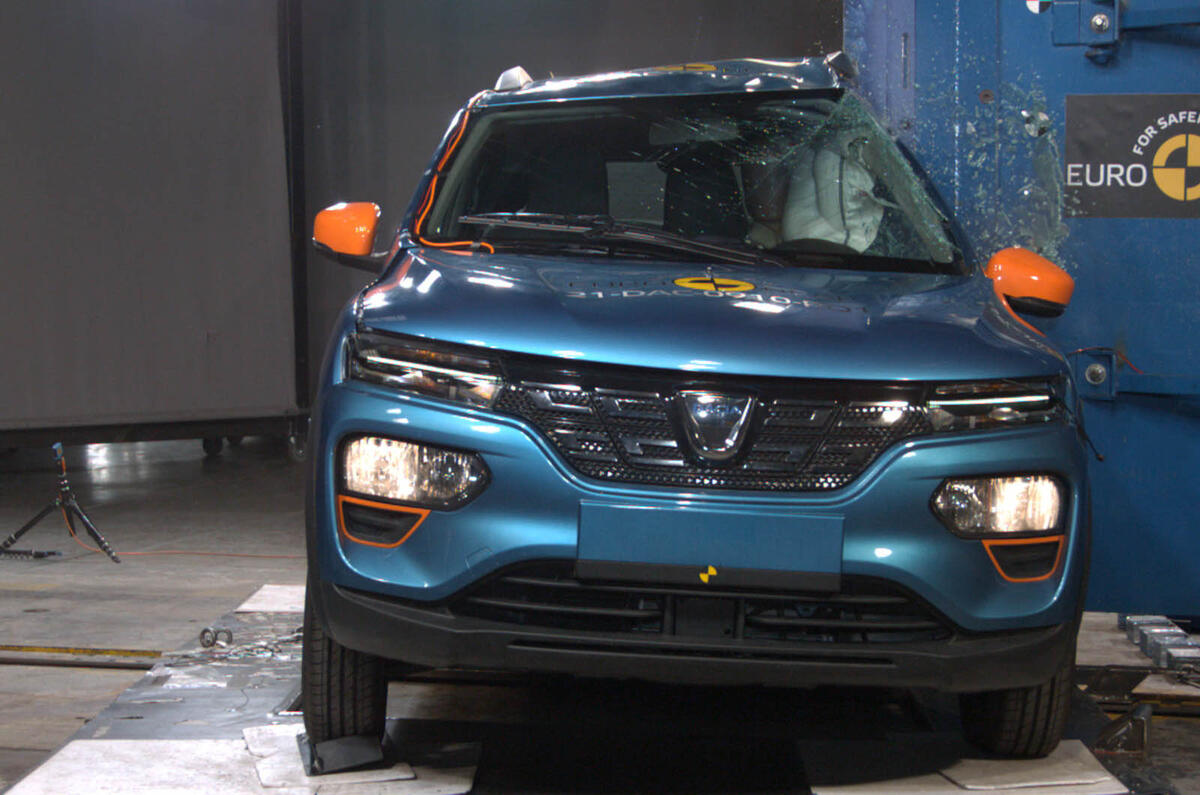
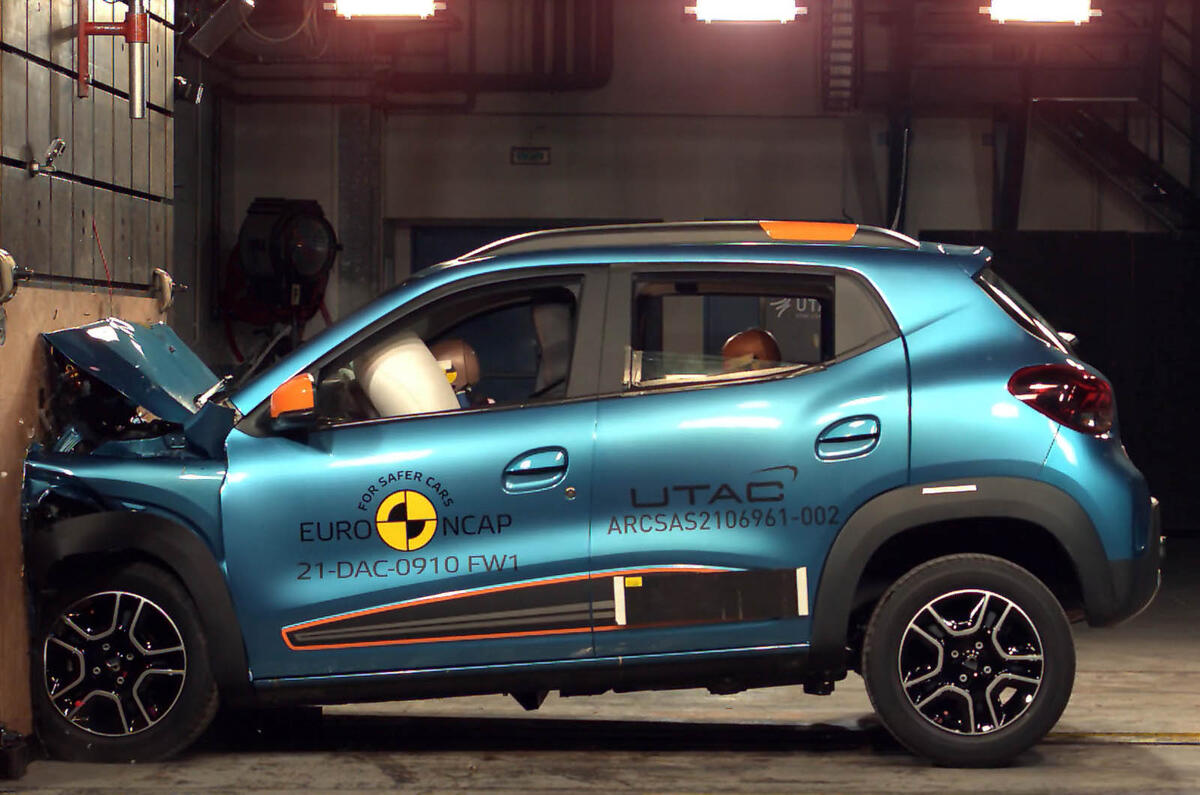
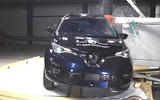
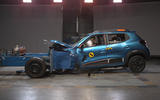
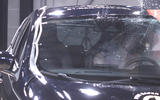
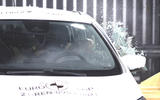

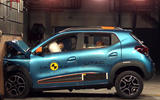

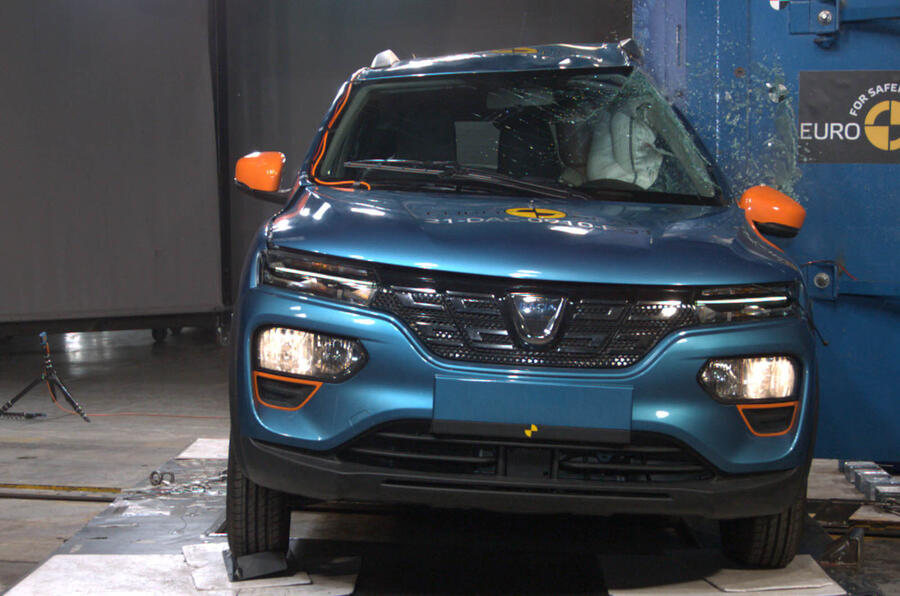





Join the debate
Add your comment
I think we all understand these systems, and most of us would be happier if other drivers had them fitted. The problem is that the technology doesnt work well enough, so people turn it off. If it never gave a false alarm people would leave it turned on, but be oblivious to its presence.
Dacia's attitude to safety is pretty depressing and weirdly laddish. As is the attitude of several posters here who think they're such great drivers they don't need help avoiding crashes that kill people. Many people call them 'accidents' of course, and maybe that's the point. People have accidents. So we need help to not have them. And you only have to watch the thousands of car crash videos on YouTube to know that we need an awful lot of help not switching lanes at the wrong moment and not running into the back of the car in front because we're too busy texting our mates about how clever we are at switching off the safety systems.
Yes, I'm perfect too, so I don't need any safety equipment on my car but I sure want everyone else to have it on theirs.
Why do we "need an awful lot of help not switching lanes at the wrong moment"? I have a pair of eyes that I was born with that help me do that.
And as for "not running into the back of the car in front because we are too busy texting our mates"?. Where do I start with that? Anyone who texts anybody while driving deserves to lose their licence at the very least. I have never texted anybody, or even used my phone at all when driving. Your insinuation that anybody posting on here does so based on what you have read is bizarre at best, immature at worst.
if you are so lacking in confidence in your own abilities as a driver that you cannot drive safely without loads of electronic driver aids, perhaps it is time to return your driving licence.
Lane Departure Warning is dangerous. It presents an additional distraction at the very time full attention is needed most. In an emergency I trust my judgement and skills to avoid an accident more than I do some contraption tugging at my steering, making the manoeuvre I need to complete both slower and more difficult. Or would you prefer I waste precious time indicating to regain steering control, before avoiding the hazard. Cars without this jump further up my shopping list not down.
I want NCAP to concentrate on the structural integrity of the vehicle, the rest I can manage myself thank you.
The biggest safety feature in any vehicle is the driver and I would prefer a skilful one to one that relies on electronic wizadry to create a false sense of self satisfied arrogance.
@Old But not yet Dead.
EXACTLY!! Well said sir. Couldn't agree more.
I have a friend who was a Traffic officer in the police a few years ago. On a night shift he and his crew mate were sent to something that had fallen off a lorry in an unlit stretch of the motorway in the middle of the night. They were almost there when they got the call, and it suddenly appeared in front of them. If the driver had bothered to indicate first before driving round it they would probably have hit it and might now be dead, and the system would probably have tried to pull thm back towards the object. A truly dangerous system.
I presume you never drove a car with that system? It works only if you slowly drift over the demarcation limes and not when you pull hard. Any input from the driver will take priority and what gives back is just an audio or vibration "nudge", dependent if how the is implemented. Top that, it can't take you by surprise as you can disable that first time you use the car. I presume you're checking to see what systems are implemented on the vehicle you drive as the driver must have full knowledge and control of if and how abs, (adaptive?) cruise control, emergency breaking, electric hand brake, and so on, will function
I have driven a car with that system. Read my other posts.
Hated it. Turned it off.